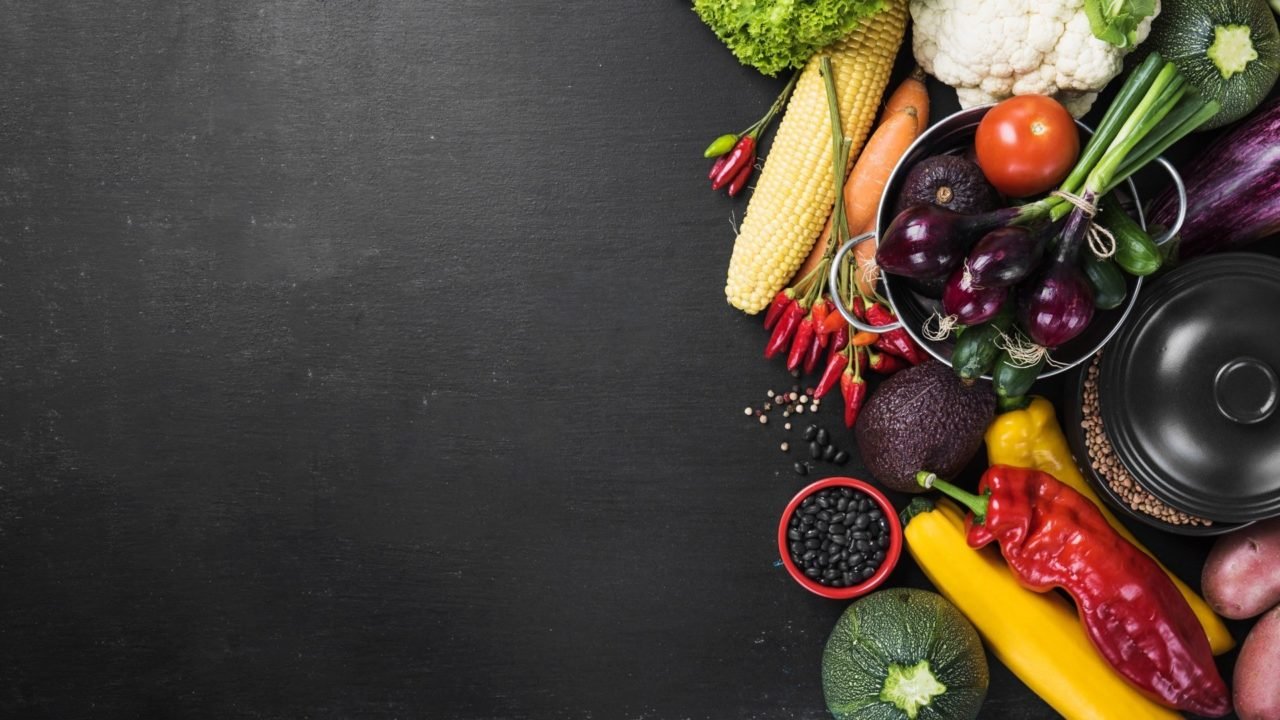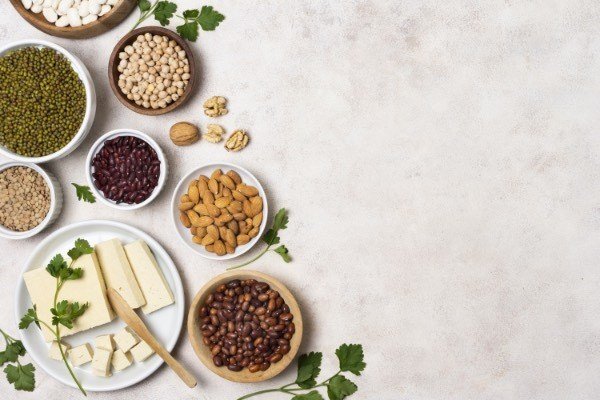What to Keep in Your Vegan Kitchen
It's that time of year again when the busyness is over and the resolutions begin. Some people have weight loss goals, some have career targets; others still have lifestyle goals such as turning vegan and living more ethically and more healthily. The trouble is starting out as a vegan can leave you scratching your head and worrying about the price of your weekly shopping.
It's true that living a vegan lifestyle can be expensive, many of the products sold as vegan command a higher price in the supermarket; but it doesn't have to be. You don't always have to buy branded products, and some of the most delicious vegan meals can be made from the simplest ingredient; vegetables, for instance, cost next to nothing to buy and cook. See below for your essential vegan food groups for your vegan kitchen.

Vegetables
Vegetables form the staple of any vegan diet and probably no-vegan diets too. They are a vital source of nutrients for humans and have the added benefit of not having many calories so it's impossible to over-consume them. You can keep fresh vegetables in your vegan kitchen, or used canned ones.
The vegetables we would recommend you keep include cruciferous veggies such as broccoli, cauliflower, kale; starchy veggies, such as potatoes, sweet potatoes, parsnips, beets; and allium veggies such as onions, scallions, garlic; and mushrooms. There are many more vegetables to choose from in these groups.
People choose a vegan diet for many reasons, some for the clear ethical dimension, some for health reasons, while others enjoy the lifestyle. This means that vegetables are not always appetizing, the good news is they are super flexible and can be chopped, blended, boiled, and stewed for flavor and variation.
Grains
Grains are excellent for a health and balanced vegan diet. They not only taste fantastic but help to control your weight, assist the gut with good bacteria, reduce your risk of heart disease, type 2 diabetes, obesity, and some forms of cancer.
Grains you should indeed in your vegan kitchen can be categorized just to two groups, Whole Grains and Refined Grains. Whole Grains include, brown rice, wild rice, and rolled oats. Refined Grains are pasta, couscous, bulgur, white bread, crackers, rolls, wraps, white rice, cereals like shredded wheat, and all-purpose flour.
Despite their reputation sometimes, grains of all kinds are good for you and support a healthy vegan diet. A selection of grains is good to have in your vegan kitchen, these will provide you with options and alternatives for different moods and situations.
Legumes
Most people are unfamiliar with legumes and what they offer, that's unless you're a nutritionist or you consume a lot of Indian and Asian food. Legumes are packed with plant-based protein, fiber, complex carbs, and a range of minerals. Legumes in the form of beans and lentils is also a factor in long life according to some studies.
You can add legumes to your vegan kitchen in three main forms, Dried Legumes, Canned Legumes, and Soy Products. Dried legumes are foods such as kidney beans, black beans, navy, pinto, fava beans. Canned legumes can be chickpeas, baked beans, and lentils; and soy products are tofu, tempeh, and soy milk.
Legumes are not only packed with nutrients and excellent for your vegan kitchen, they are versatile and can be used in conjunction with many other food groups to bring flavor and interest to your meals.
Fruits
Also known as nature's candy, fresh fruit is vital for a healthy functioning human. Contrary to popular belief the sugar found in fruit is not unhealthy and contributes to an optimal blood-sugar level. Fruits are also an important source of fiber, vitamins and antioxidants.
Fruits come in several different forms that you can use to stock your kitchen. There is Fresh Fruit, Frozen Fruit, Dried Fruit, and Canned Fruit, each of these groups have their advantages and disadvantages, dried and canned fruit may not have quite as many nutrients available but they are more convenient and long-lasting, for instance.
If you're just starting out on the vegan journey, or even if you're a seasoned pro it's worth experimenting with the fruit in your kitchen. Applesauce can be used in baking to replace some of the oil. Dates can sweeten without adding refined sugars. A variety of fresh and frozen fruits can be used in rolled oats and smoothies.

Nuts & Seeds
When you're a vegan there are a few things you should know about your nutritional requirements. Generally you need to consume more critical nutrients such as omega-3, calcium, zinc, magnesium and iron. All of these are available in nuts and seeds.
Make a space in your vegan kitchen for a range of nuts and seeds. You might include almonds, walnuts, pecans, hazelnuts, cashews, macadamia, Brazil nuts, pistachios, pine nuts, for nuts, and for seeds buy some chia, hemp, flax, sesame, pumpkin, sunflower.
Nuts and seeds are the ideal way to add flavor and interest to a breakfast or smoothie. The crunch you get from this friendly favorite will elevate your food to another level and provide you with vital nutrients and fats you need in your vegan lifestyle.
Condiments
When you have your kitchen stocked with a moderate range of foods from the food groups above, it's time to start cooking. These foods can be combined in various ways but they will still taste bland without proper seasoning, that's where condiments come in.
Condiments can be Herbs and Spices, Dips and Sauces, and Vegan Flavoring. If you don't have any items from this food group in your kitchen it's time to stock up. Delicious condiments will not only enhance the flavor, it will contribute more nutritional value to your diet.
For herbs and spices consider turmeric, ginger, and nutritional yeast flakes. For dips and sauces, think about soy sauce, mustard, salsa, and hummus, and for vegan flavoring stock some balsamic vinegar, olive oil and vegemite.
Baking & Cooking Items
If you love baking but think you won't be able to keep it up once you're vegan, think again. There are not only many essential vegan replacement products on the market today, but some natural foods are very effective as well. You can replace egg with ground flaxseed, chickpea flour or tofu depending on your meal. Plant based milks replace animal milks. And vegetable oils or vegan butters are pretty widely available these days.
Many of the items you will use for vegan baking come from the food groups you have stored in your vegan kitchen. Items such as grain-based flours, nut butter and condiments. Other items you might use for vegan baking include vegan sugar, brown, coconut, maple syrup, dates, rice, baking powder and yeast.
Vegan Dairy Replacements
Vegan dairy replacement typically comes in the form of soy, almond, cashew, oat, or coconut products. These are various milk alternatives, cheese, ice-cream, and pudding. Although these are marketed as dairy replacements they are not necessarily meant to directly imitate dairy. There are some variations in consistency and taste that can make a difference.
However, you will almost certainly find your favorite dairy replacement products and quickly become used to them. Before long you will not be able to imagine anything else in your kitchen. Some popular brands for vegan replacement products include Silk, Daiya, Miyoko, So Delicious, Oatly and Chao.
Snacks & Treats
No vegan kitchen is complete without a cupboard for snacks and treats. There are more vegan biscuits and bars available today than ever before, but there is also the phenomenon of accidentally vegan products. For example, Oreos and Original Cracker Jacks are accidentally vegan. When you want a treat you're not thinking about its health value, manufacturers don't either which explains some of the ingredient lists.
In the supermarket, check the ingredients on your favorite treats to see if they contain any animal items. Look out for Casein Whey, Lactose, Collagen, Glycerin and Gelatin. Experiment at first and find a range of favorites you can have when the mood takes you – it's always good to have some go-to treats in your vegan kitchen.
